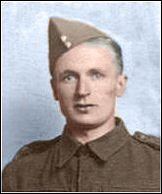CHAPTER 2 - THE GLORY OF WAR
“There never was a good war, or a bad peace.”
The mountain was a real thorn in our side, a huge stumbling block to our progress. With a zeal that was indicative of our will to win at that stage we had made good progress into Eritrea. Now we had to confront the problem of the mountain. It seemed to tower up into the sky and although it was not the tallest of mountains it looked pretty formidable to us. Its sides precipitous, a road leading to the summit wound round and round and looked extremely treacherous because just one slip and you could plummet hundreds of feet down. The enemy was firmly entrenched on the summit where it was luxuriously cool compared with the stifling heat down below. There were numerous caves that sheltered both troops and supplies from the weather. It gave them a great vantage point and a surprise attack was literally impossible. In short it was easy to defend. A few boulders pushed down the slopes could well start an avalanche. |
Pte. Joseph Hutt |
Never the less we tried to storm this fortress on at least five occasions and each time we were repulsed with heavy losses. When our officers told us that the mountain must be taken “at all costs” we were not particularly enamoured by the idea. However, we knew that if the higher ups said “at all costs” then that’s the way it would be. Although we were full of trepidation the next few days provided a period of comparative calm.
Then came rumours of a good deal of movement in the area to our rear but we remained unaffected and a false sense of security crept in. Suddenly one afternoon, we were assembled and told that we were now going to take the mountain. “Take it, not just attack It.” the CO emphasised.
Most attacks take place at dawn and when we were ordered to “stand to” half an hour before speculation was rife, a dawn attack was on. The period just before dawn in the area was really quite pleasant. The air was cool but being in full fighting kit and agog with the thoughts of an imminent attack we were quite warm enough. Suddenly we were ordered to parade on the plain in full view of the enemy. I remember thinking how stupid it all was since they could have been training their artillery on us at any time. Then, to our amazement we were issued with cotton wool and told to stuff it in our ears. “Orders is orders” as they say so we did it, puzzled though we were. Close by us we could see artillery shells bursting around our position. Then at dawn the bombardment began!
I am not adept enough at prose to describe what happened during the next half hour but I will try. Although my ears were stuffed with cotton wool the noise was still thunderous and terrifying. The very ground began to shake and I began to think of Thor hurling his thunderbolts against the mountain or Mars venting his wrath on the summit. There was a sudden noise like express trains roaring above us and it was if the daddy of all thunderstorms had broken out on the top of the mountain. Then I got the impression that giant mushrooms were sprouting up on the sides. Suddenly all these ”mushrooms” seemed to join up together and completely blotted out the mountaintop. For at least half an hour this mayhem continued. We could hear echoes all around us, then it suddenly it stopped!
“Now it’s our turn,” we thought.
The mountain was virtually obliterated by smoke and dust and we thought it would be nigh on impossible to fight in these conditions. Then, wonder of wonders, we were suddenly ordered to stand down. There would be no attack. All that morning we could hear the rumble of landslides on the mountain. It was late afternoon before we caught a glimpse of the summit as the smoke cleared and what a sight greeted us. The top of the mountain had completely disappeared.
It was only then that our sergeant explained the strategy. One thousand big guns had been moved up with their sights sets set on the mountain’s peak. The operation had been carried out in great secrecy and I can vouch for that because we had no idea. It had been necessary for us to parade in front of the enemy so that they would bring out their guns to get us in their sights. Then at dawn the thousand guns had opened fire simultaneously. It turned out to be the biggest bombardment of the war up until then and the effect was devastating.
For two whole days the RE's (Royal Engineers) worked around the clock and did a tremendous job in making the broken areas of the road up the mountain passable. When the first wave of infantry followed, scenes of utter carnage greeted them. There was a smell of death in the air and the sight was truly sickening. There was no opposition! Two days later some enemy prisoners were taken. They had been found wandering about, dazed, hungry and weary. They were terribly shell shocked.
Two days later I was in a salvage party up the mountain. We entered a cave but hurriedly dived for cover. A machine gun was trained on us and the gunner was sitting there with his hand firmly on the trigger. After some time, with no sound of movement, we circled round and approached the gun. He was stone dead, just sitting there with his finger on the trigger. He appeared to have no wounds but we decided that he had died from concussion.
A victory? I suppose it was but I did not see any of the glory of war back then and neither can I recollect any now!

